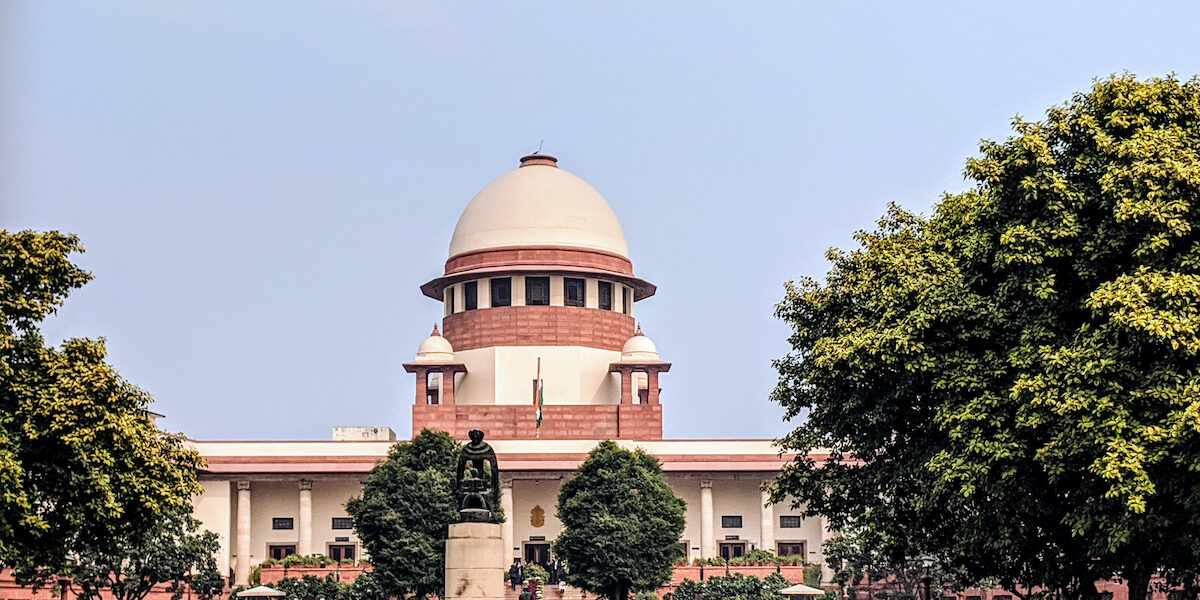Plea says the new legislation was not debated in Parliament and was passed when most Opposition MPs were suspended.

The Supreme Court of India. (iStock)
A PIL was filed in the Supreme Court on the first day of the new year seeking a stay on implementing the three new criminal laws, which became laws on 25 December, 2023.
The government is yet to notify when the new laws will come into force.
The Bharatiya Nyaya Sanhita, the Bharatiya Nagarik Suraksha Sanhita, and the Bharatiya Sakshya Sanhita are set to replace the Indian Penal Code, the Code of Criminal Procedure, and the Indian Evidence Act, respectively.
Advocate Vishal Tiwari sought direction from the court to set up an expert committee under the chairmanship of a retired judge of the Supreme Court to examine the laws’ validity.
The PIL points to a discrepancy in the manner of enacting the laws — they were passed without any proper parliamentary debate when nearly 100 MPs of Opposition parties were under suspension.
The PIL further claims that the changes brought about through the new criminal laws are draconian and seek to establish a police state in reality, besides asserting that they violate the fundamental rights of the people of India.
It goes on to say: “If the British laws were considered colonial and draconian, then the Indian laws stand now far more draconian as, in the British period, you could keep a person in police custody for a maximum of 15 days. Extending 15 days to 90 days and more is a shocking provision enabling police torture.”
The Bharatiya Nyaya Sanhita deals with crimes previously dealt with as acts of sedition, such as secession, armed rebellion, subversive activities, separatist activities, or endangering the sovereignty or unity of the country.
The new laws decree that anyone purposely or knowingly, by words, either spoken or written, or by signs, or by visible representation, or by electronic communication or by use of financial means, or otherwise, excites or attempts to excite secession or armed rebellion or subversive activities, or encourages feelings of separatist activities or endangers sovereignty or unity and integrity of India or indulges in or commits any such act shall be punished with imprisonment for life or with imprisonment which may extend to seven years and shall also be liable to fine.
The colonial idiom has been excised from the new law. For instance, according to IPC Section 124A, which deals with sedition, anyone involved in the crime may be punished with life imprisonment or a three-year jail term.
Under the new laws, “Rajdroh” has a new term, “Deshdroh”, while doing away with the reference to the British crown. Loosely explained, Rajdroh refers to rebellion or an act against the ruler, while Deshdroh represents such acts against the nation.
And for the first time, the Bharatiya Nyaya Sanhita defines terrorism.
Under the new laws, the magistrate’s power to impose fines has been increased, as well as the scope of declaring a proclaimed offender.

May 17, 2024

May 17, 2024

May 17, 2024

May 17, 2024

May 17, 2024

May 16, 2024